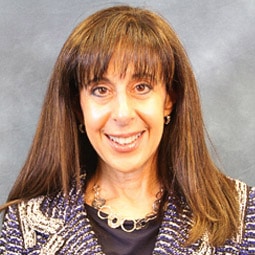 Debbie Friedman; Photo by Michael Fox Photography
Debbie Friedman; Photo by Michael Fox Photography This month marks the nine-year anniversary of the death of the beloved Jewish musician Debbie Friedman, who died on Jan. 9, 2011, at 59. Her music touched Jews across the religious spectrum and also impacted the general culture of American Judaism. Friedman is widely remembered for her melody accompanying the misheberach, the prayer for healing, that has become a virtual icon among liberal Jews.
Traditionally, a prayer leader recites the misheberach in a synagogue during the Torah reading. During this prayer, the names of those who are ill are publicly recited. When recited on behalf of a Jew, it is customary to use the Hebrew name of the person for whom the prayer is being said. Although for most purposes, a person’s Hebrew name traditionally includes the Hebrew name of one’s father, in the case of the misheberach, the Hebrew name of the mother of the ill person is used instead. No single reason for this distinction exists, but this tradition has an ancient pedigree.
Despite its origins in traditional Judaism, the misheberach has been the subject of remix among the majority of American Jews. Friedman’s melody certainly has contributed to its popularity, but there are many other reasons it is so widely appealing. For one thing, it is highly inclusive. It can be recited on behalf of all people. Also, as Friedman’s version illustrates, the actual content of the misheberach can be remixed in a highly accessible manner so that Jews and non-Jews, with little or no knowledge of Hebrew or background in Judaism, can participate. Another important aspect of the prayer’s appeal is that it is readily portable so that it can be invoked as a stand-alone prayer in non-synagogue settings such as support groups for ill patients and their families. The prayer’s malleability also is demonstrated by its frequent extension to cover all emotional and spiritual dimensions of illness for patients, their caretakers and even the loved ones of those of are ill.
Although many people feel a general disconnect between intellect and emotion when it comes to faith, at certain moments of our lives, the intellectual barriers to faith recede.
These applications of a remixed approach to the misheberach allow many individuals other than those who are ill to find a personal meaning in the prayer beyond the original context of petitioning God for a positive outcome. The truth is that people can, and do, find meaning and comfort in reciting this prayer even if they are unsure about the specific nature of their faith. For all these reasons, the misheberach is a remarkable illustration of how Jewish tradition can be remixed to provide a pathway with timeless relevance and appeal.
A study based in Tucson, Ariz., of 35 people’s experience with the misheberach revealed a deeper connection to Judaism based on the consistent recitation of this prayer. This connection was grounded in history, community, peoplehood, strength, comfort and emotional healing. Illness, either one’s own or that of a loved one, has the potential to create especially significant opportunities for embracing Jewish tradition. I have never had anyone refuse me when I have offered to say the misheberach on behalf of a sick relative or friend, no matter how disengaged that person was from any type of religion. Although many people feel a general disconnect between intellect and emotion when it comes to faith, at certain moments of our lives, the intellectual barriers to faith recede. At these times, the emotional or spiritual pull takes over as comfort, history, tradition and community assume more importance.
The beauty, wisdom and power Jewish tradition, including the power of Jewish prayer, can speak to Jews from all backgrounds. The history of the Jewish people is as complicated as Jewish tradition. Transmitting this tradition in today’s largely secularized American society is difficult. Among Jews who don’t feel bound by Divine command to observe the laws of Jewish tradition, religion can be a tough sell. Then again, Jewish tradition always had to be flexible and responsive to the foreign cultures in which the Jews have lived for centuries. The importance of this flexibility was recognized in the Talmud by Rabbi Simeon Ben Eleazar, who is quoted as advocating that one should “be pliable like a reed, not rigid like a cedar.” The underlying message is that rigidity can threaten survival.
Roberta R. Kwall is the Raymond P. Niro Professor at DePaul University College of Law. She is the author of “Remix Judaism: Transmitting Tradition in a Diverse World,” forthcoming in February, 2020 (Rowman & Littlefield), “The Myth of the Cultural Jew” (Oxford University Press) and “The Soul of Creativity” (Stanford University Press).






















 More news and opinions than at a Shabbat dinner, right in your inbox.
More news and opinions than at a Shabbat dinner, right in your inbox.